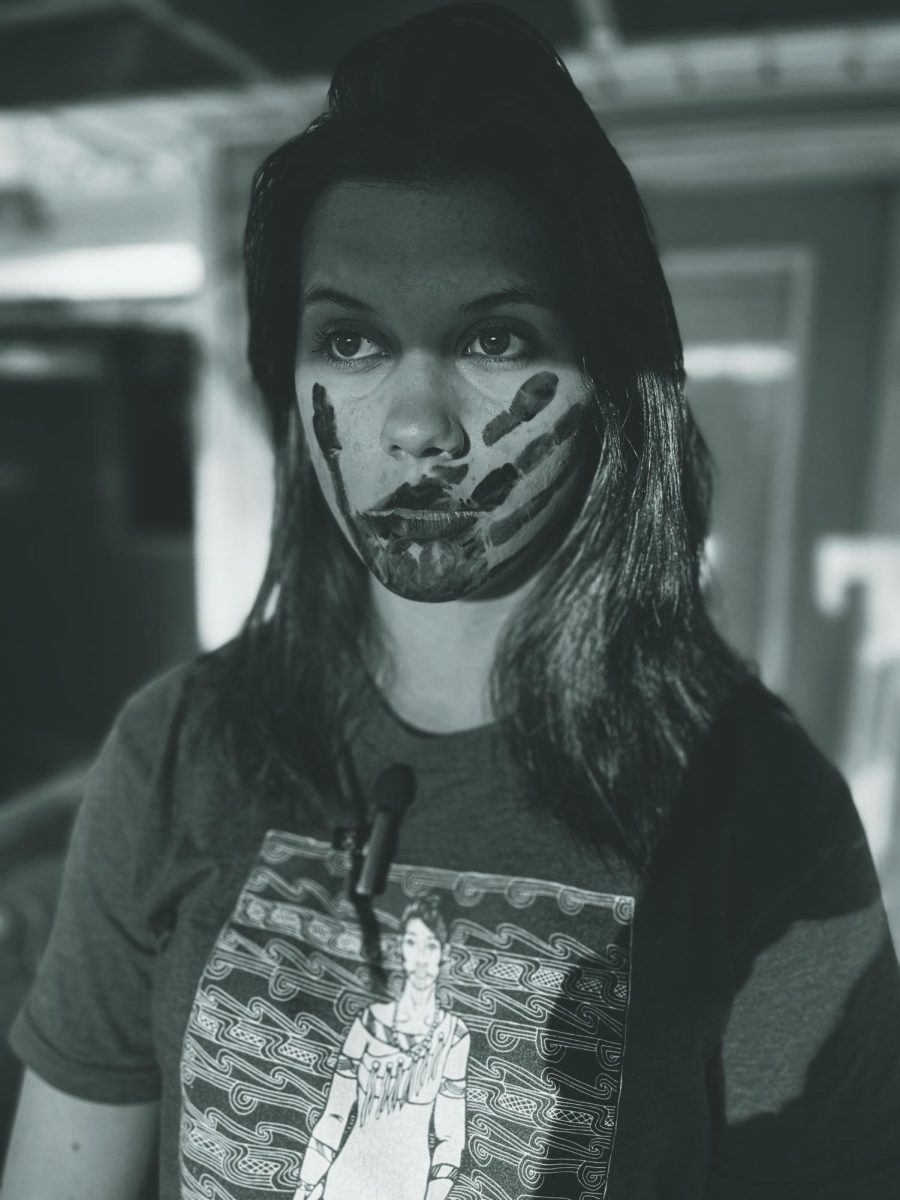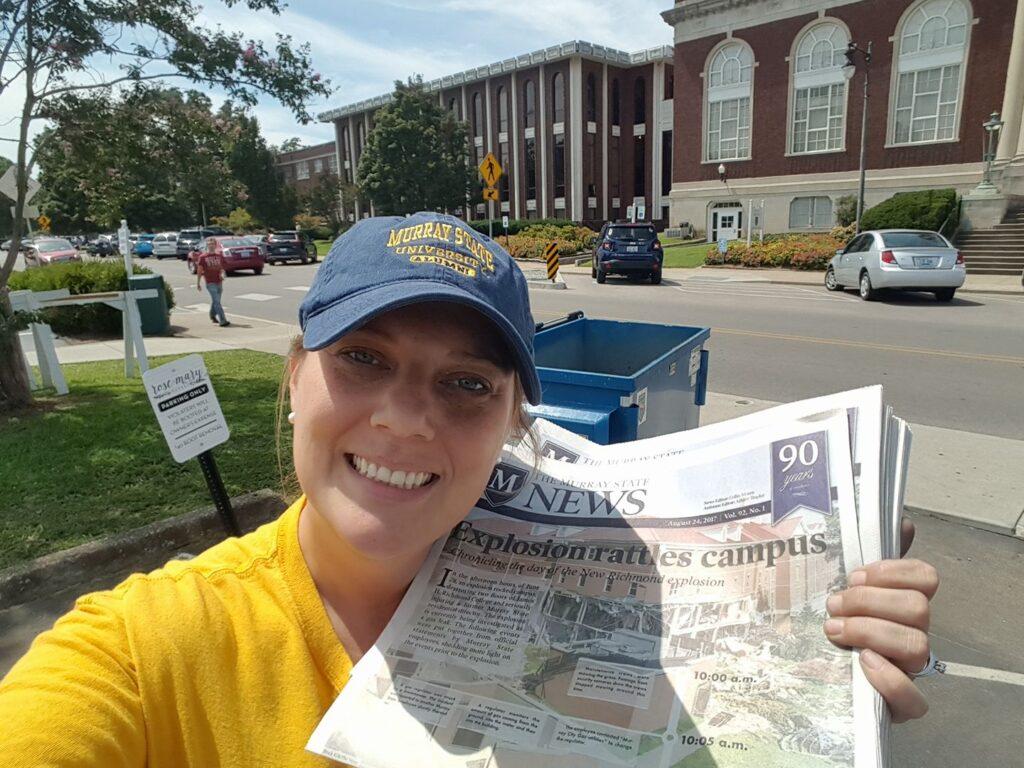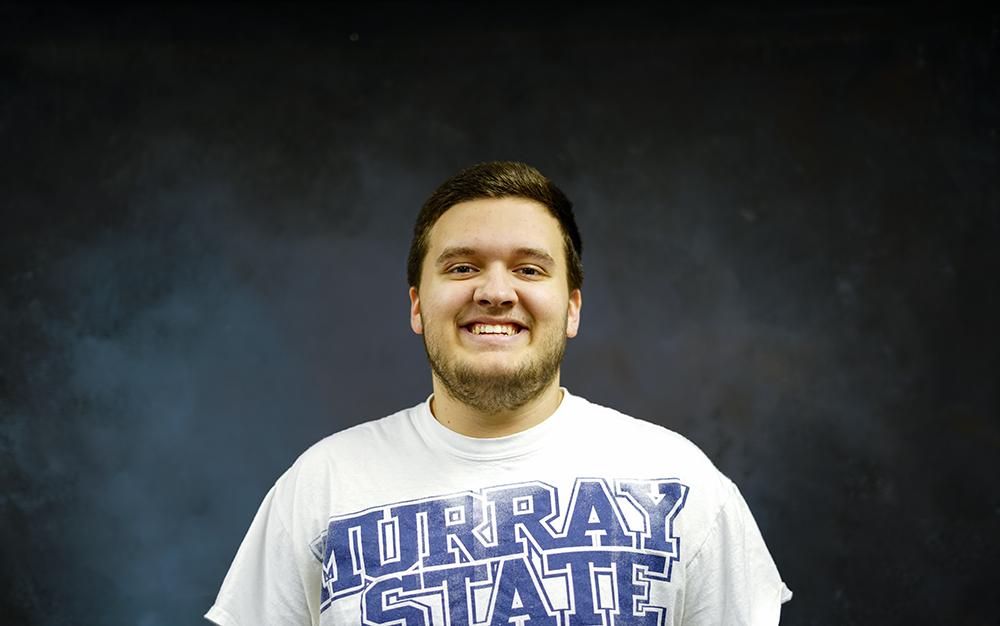Charlotte Kyle
Features Editor
On “Community,” Abed Nadir (Danny Pudi) uses pop culture references to recognize situations and understand the emotions of those around him.
I understand emotions – I’ve got a bucket load of them, ready to pour over the edge at the slightest nudge – but I find myself relating classwork to things I have seen on television.
Usually this helps me understand it better, or at least livens up a lecture I may have trouble sitting through under normal circumstances.
When discussing paper types in Principles of Estimating I found my brain recognizing terms used on “The Office.” I could understand the different types easier if I imagined my favorite Dunder-Mifflin salespeople trying to make a sale to a big client.
This wasn’t the first time this had happened. In fact, “The Office” was mentioned in another class not long before that. When studying for my Interpersonal Communication midterm I looked over all of my notes, surprised to find a note next to one term.
It simply said, “Dwight Schrute LOL.”
I vaguely remembered writing it down, as the discussion in class reminded me of Rainn Wilson’s character for some reason. Unfortunately, I could not remember what the reason was, nor could I gather from my other notes what the connection between the term and the character was.
I probably spent a little too long trying to figure it out. (This was one of those times where it doesn’t help, obviously.)
Coincidentally a few weeks later the professor made a Dwight (and Jim) reference for a different topic. It felt good to know that not only was writing “Dwight Schrute” in my notes a legitimate source of understanding, but everyone else was writing it down, too.
That class tends to be where most of my connections come from. As we discuss personality types I tend to relate those with characters I watch on television.
Zoe Hart (Rachel Bilson) on “Hart of Dixie” tends to engage in a debate style of communication rather than a dialogue style.
Her conflict with Brick Breeland could be smoothed over if the character would accept advice from those around her. Instead she behaves in a combative manner, determined to prove that she is right and everyone else is wrong.
In another class session we discussed body language experts who appear on talk shows and how you can’t always trust that they are legitimate “experts.”
My first thought – like any normal human being, I’m sure – was the “Parks and Recreation” season two episode “Christmas Scandal,” in which Leslie Knope (Amy Poehler) is falsely accused of engaging in a sex scandal with a councilman. Knope is accused of sending a “ready for childbearing” message as she adjusts her suit.
(Another line, “In a 24-hour news cycle, the tiniest story gets dissected over and over again,” constantly plays through my head in journalism courses.)
I’m starting to think I would understand every lecture in every class a little bit more if I could relate the topic to a TV?character. In fact, I watch enough TV?that I?could probably do it.
Challenge accepted.
Contact Kyle






























































































